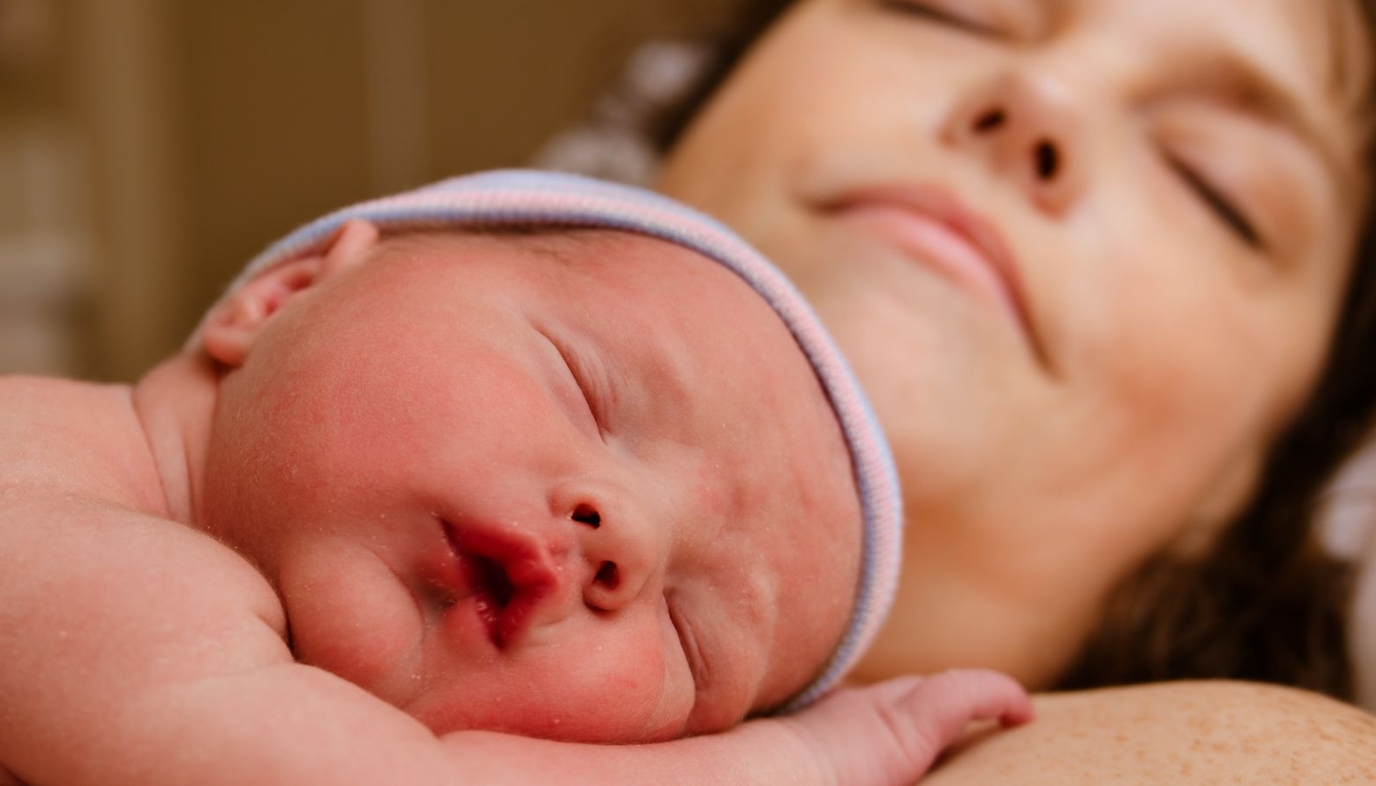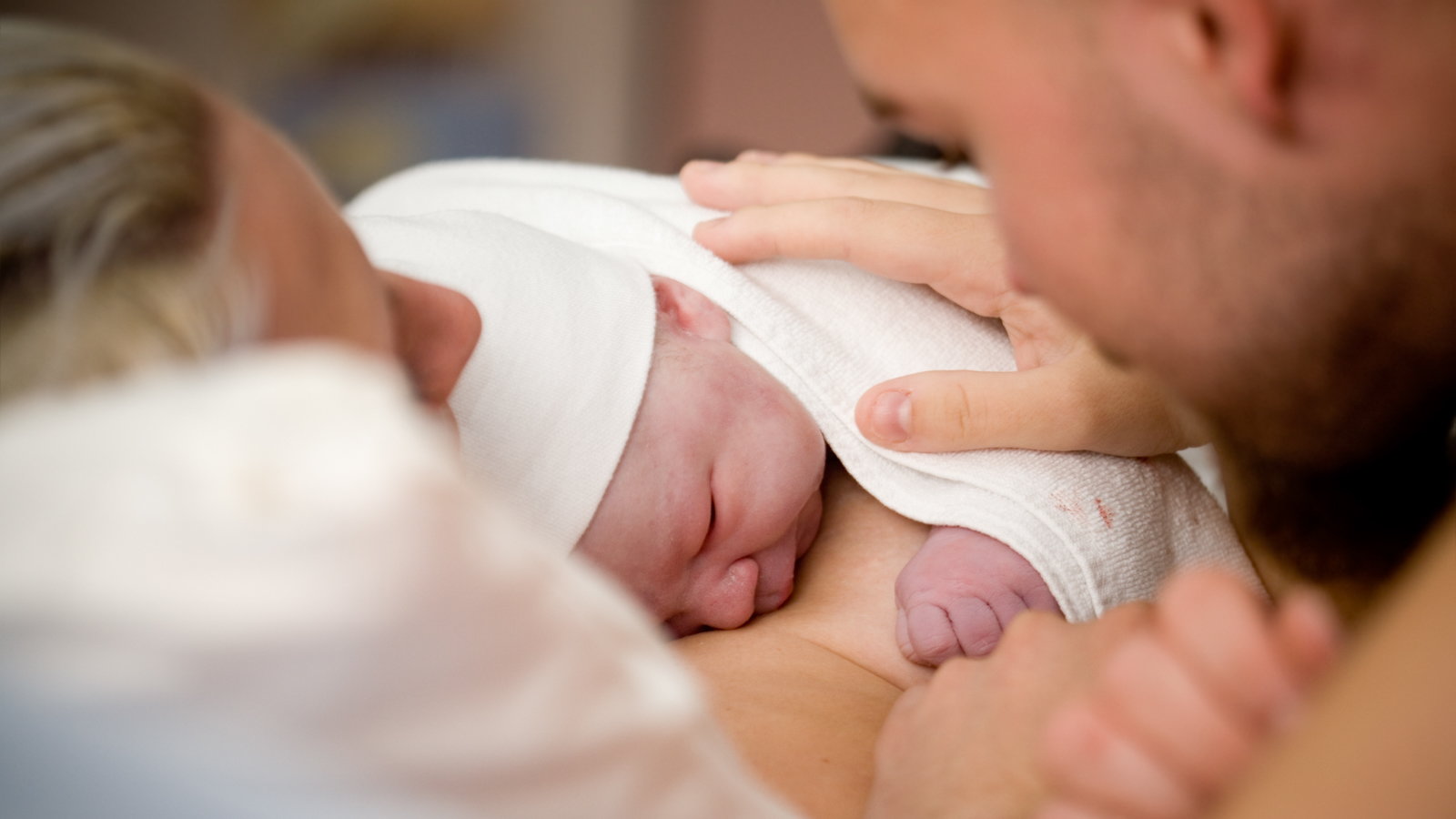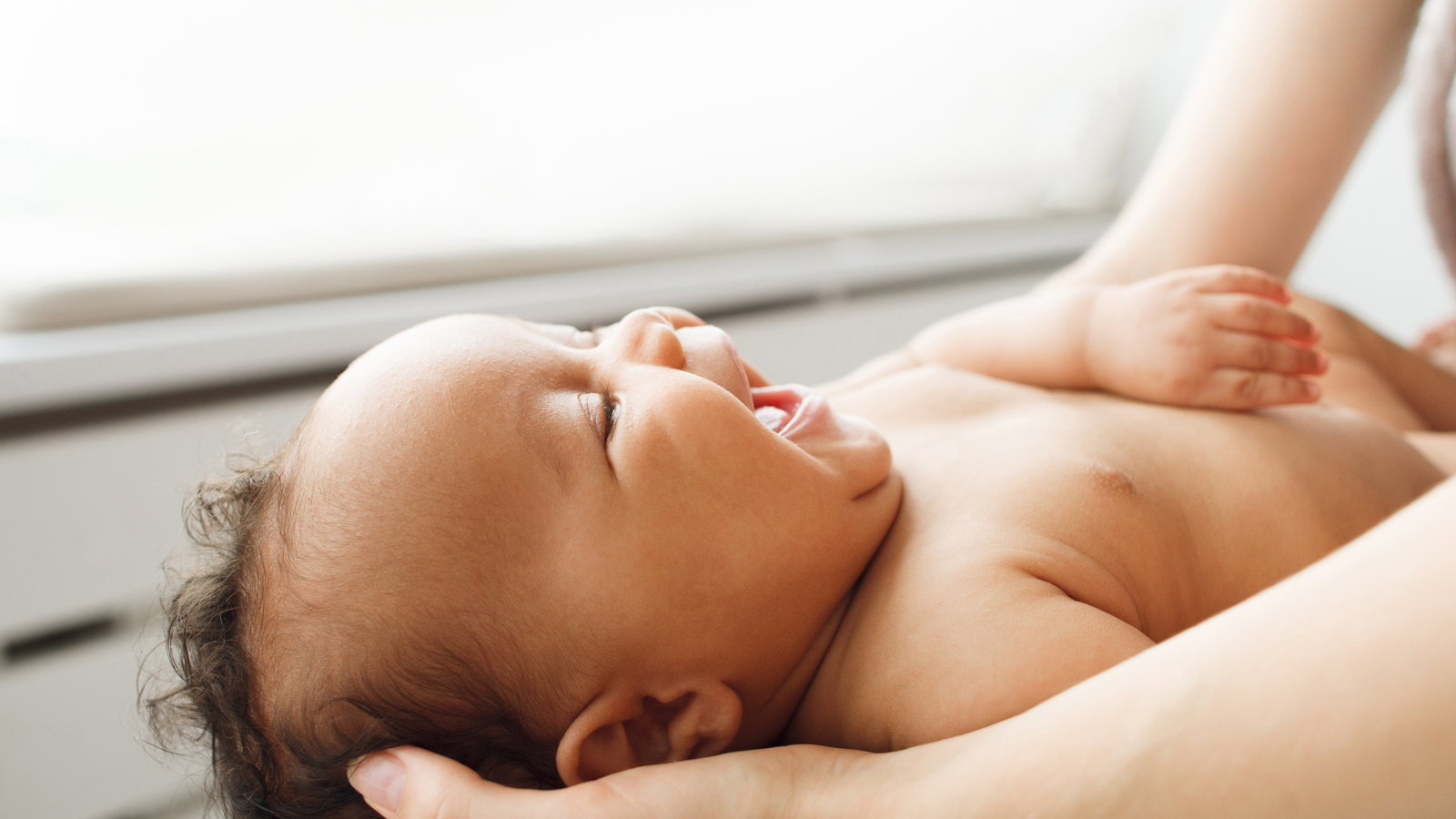
Giving birth to a new baby is one of the most beautiful moments in a woman's life, but it's also often one of the most traumatic natural occurrences that her body can go through. You'll be monitored closely by your doctor, nurses, or midwife in the initial postpartum phase to make sure there are no complications. You'll be given lots of padding and a pair of functional, drab mesh panties to wear. You'll also get a pretty intense uterine massage from the doctor or nurse, to make sure your uterus is shrinking properly. And that's just the beginning.
Afterpains
It would be great if the pain went away as soon as the baby is out, but your uterus will keep contracting for a day or two. These afterpains are normal, and are a sign that your uterus is still shrinking. Breastfeeding will actually trigger hormones that will cause these contractions to continue, but it's nothing to be concerned about; it's just part of the process.
Postpartum Hygiene
You'll be given a peri bottle (a little squirt bottle) and instructions on how to wash the vaginal area with it in the postpartum phase. Use clean, sterile water and spray from front to back (it actually feels a lot more soothing than it sounds, especially after what you've been through). Staying clean will help prevent infection.

Bleeding will continue for several days after delivery. For about the first four days, the blood will be bright red. After that, the discharge should start to clear up and look more like mucus. Warning signs to watch for include large blood clots (bigger than a quarter) and blood remaining bright red after four days. A foul odor can also be a sign of infection.
Episiotomy and Perineal Tearing
You may receive an episiotomy during delivery, which is a surgical cut to the perineum to help with the birth. Sometimes the perineum will simply tear during birth. In both cases, stitches will likely be required. It's important to prevent any additional tearing so the area can heal properly. Sutures that dissolve on their own after a few days are commonly used, but you may have to go in for an additional visit to have them taken out.
Elimination after Delivery
Urinating will be painful at first, and that first bowel movement after delivery will be painful (sorry, there's no getting around this). Straining during bowel movements should be avoided. Talk to your doctor about using stool softeners and other methods to avoid constipation. Drinking plenty of water and staying hydrated will also help. You should take a sitz bath after every bowel movement to keep the area clean and infection-free. You may have to urinate more often than normal for the first few days, as the body rids itself of excess fluids from the delivery. Ibuprofen is acceptable for pain relief for most mothers, including those who are breastfeeding (check with your doctor).
When to Call the Doctor
Call your doctor immediately if you experience any of the following in the postpartum phase:
- Any signs of fever, even slight
- Afterpains that get more severe or painful in time
- A burning sensation when you urinate
- Headaches or blurred vision
- Vomiting
- Excessive bleeding
- Shortness of breath or chest pain
- Feelings of depression
- Swelling in one leg
C-Section Care
If you've had a cesarean section, your recovery will be longer and you'll require additional care. You may be in the hospital for several days afterward, as opposed to a day or two. Avoid putting any pressure on the incision scar. You may need to position the baby differently for breastfeeding to help with this (talk with a lactation specialist). Watch for any signs of infection at the incision site for the first few weeks, including redness, swelling, discharge or a feverish feeling.
You're more at risk of contracting pneumonia if you have a C-section. The nurse or doctor will teach you how to cough to keep your lungs clear without disturbing the scar. Gas and bloating are normal the first couple of days after the surgery; moving around will help. Frequent urination is also helpful in the early stages because the bladder will put less pressure on the incision area if it's empty.

